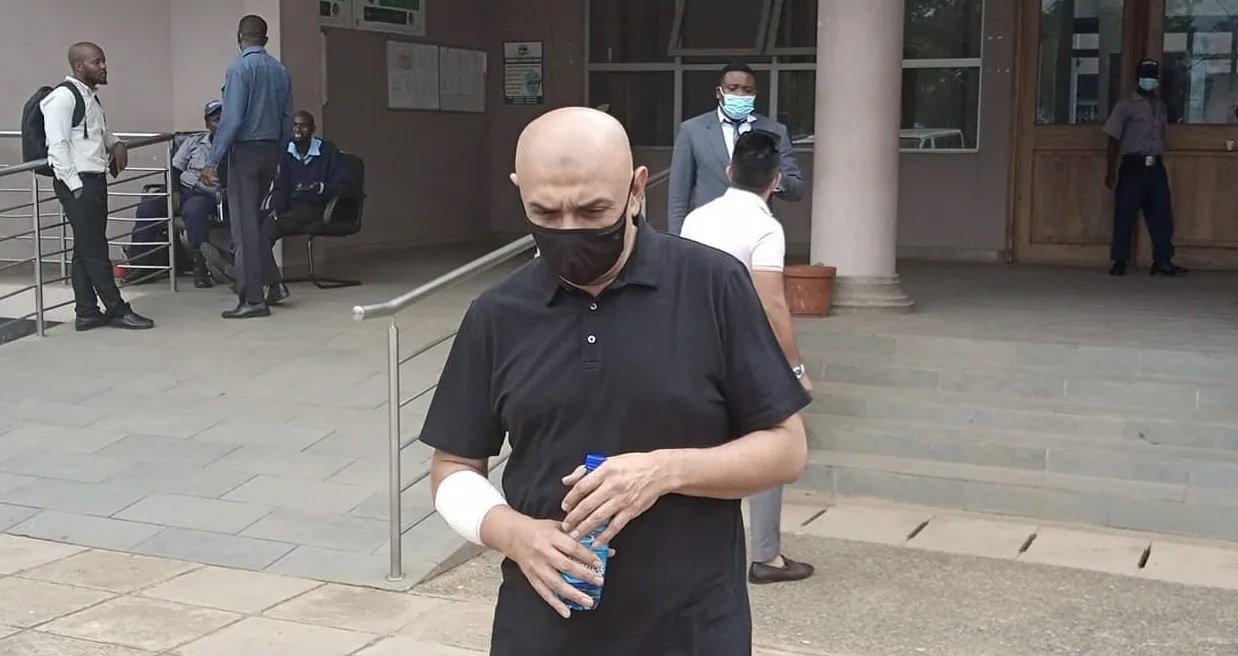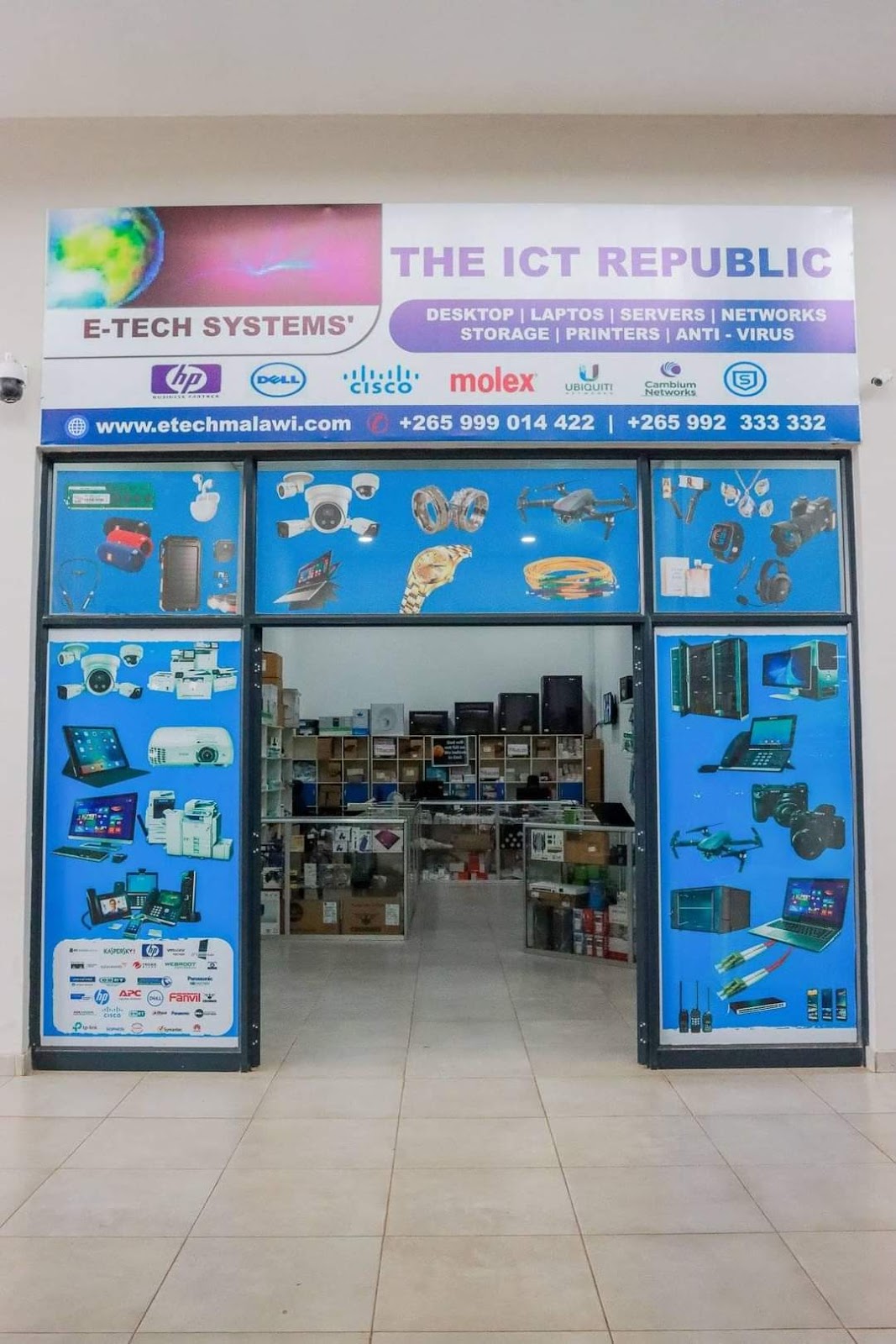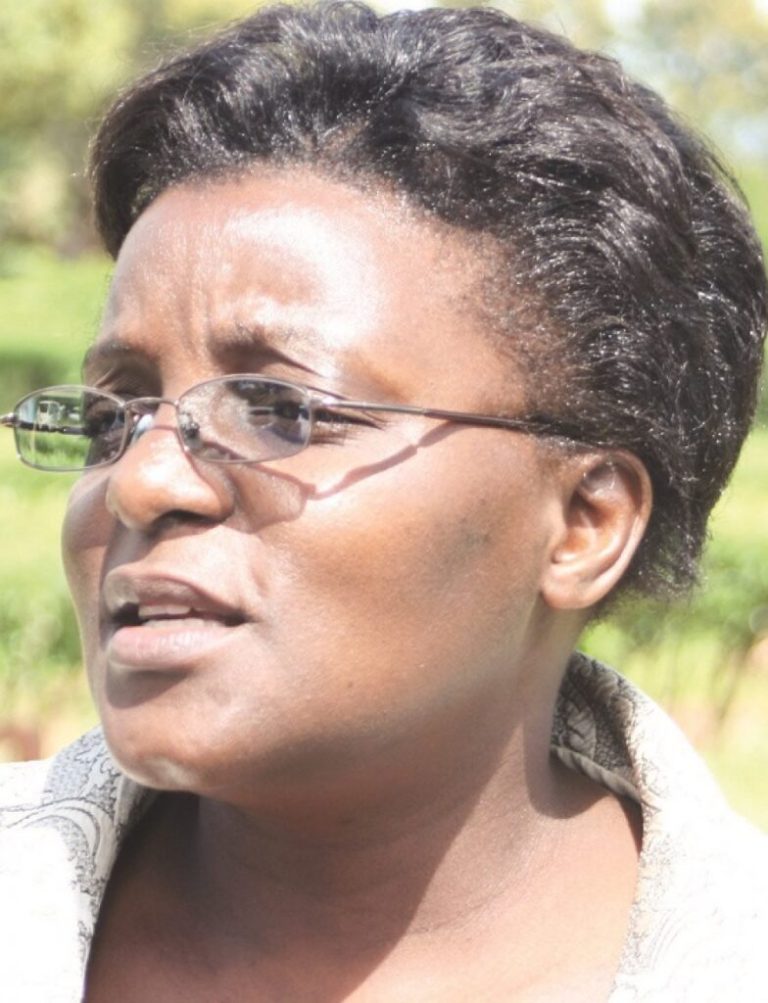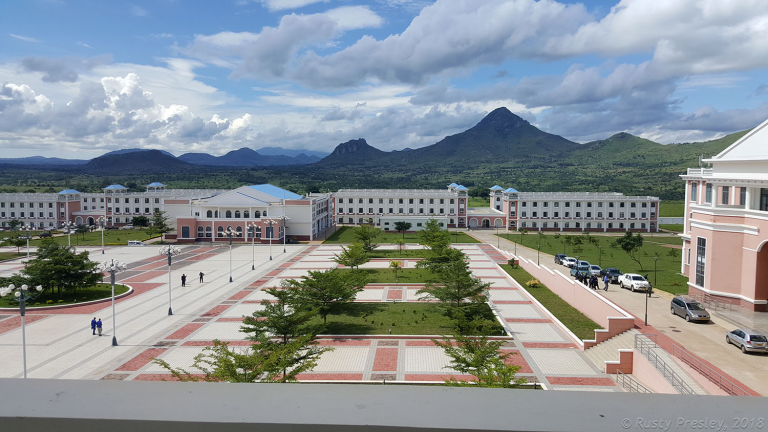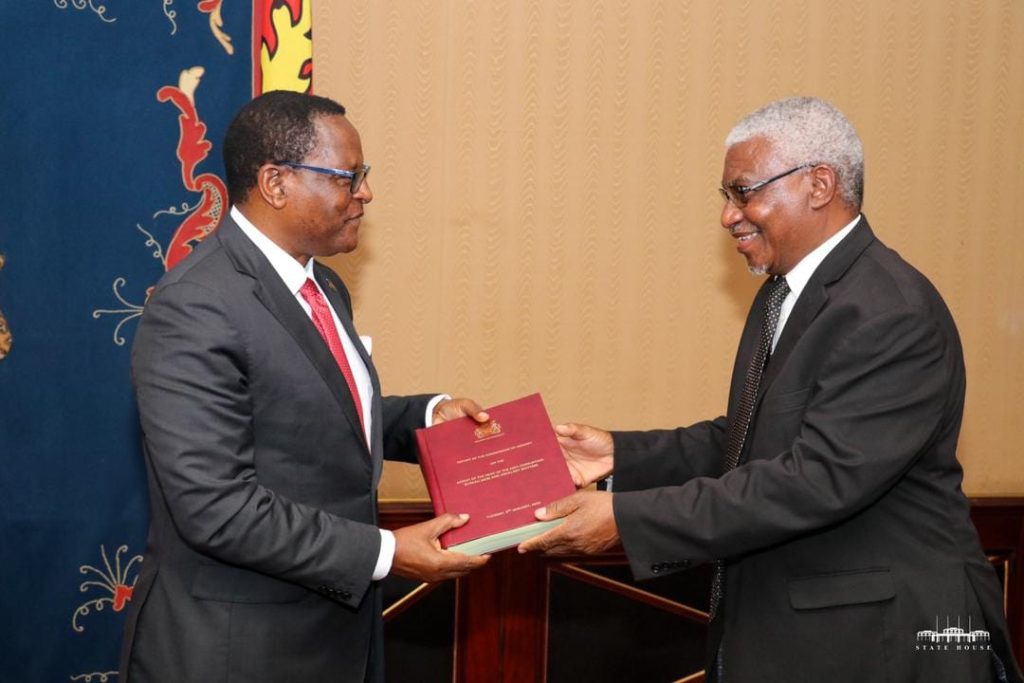BY PIJ INVESTIGATIONS
In December 2021, the Anti-Corruption Bureau arrested businessman Karim Batatawala on charges of money laundering and conspiracy to defraud the Malawi Government in a procurement transaction.
Batatawala was arrested alongside three co-accused of conspiracy to defraud by inflating the market price of 500 lockers procured by the Immigration Department from Africa Commercial Agency under contract number IM/01/85 dated March 22, 2010, valued at K2,950,560 per unit price totalling K1,475,280,000.
Batatawala’s co-accused were Department of Immigration and Citizenship Service ex-Chief Immigration Officer Elvis Thodi and the department’s Commissioner Responsible for Operations Fletcher Nyirenda and Deputy Director Limbani Chawinga. At the time of the alleged crime between 2009 and 2012, Nyirenda was Head of Research and Planning while Chawinga was Deputy Head of Research and Planning.
Prior to the arrest, as the public’s focus was sharply trained on corruption in public procurement as a result of the Zuneth Sattar investigation by UK and Malawi law enforcement agencies, Attorney General Thabo Chakaka Nyirenda debarred from all public procurement all known Batatawala-owned or connected companies.
But Batatawala is not going down without a fight. Within months of being debarred, his companies have presented to government claims of payments and compensations amounting to K250 billion through 20 companies.
A PIJ investigation has now cast questions over the manner the businessman was awarded some of the contracts and the basis of the claims for compensation.
The investigation followed a long trail of allegations and evidence of misprocurement, breaking of procurement laws, overpricing, corruption, and fraud that ended in his arrests and turning the businessman into one of the richest men in the country.
Throughout his dealings with various government agencies, particularly security organs–Military, Police, and Immigration–a pattern in the investigation emerges in which Batatawala supplied goods sometimes over a decade after being contracted by the procuring entity.
In some instances, the supplied goods would then be contested by the procuring entity for not meeting requirements or being substandard, our investigations further uncovered.
Our investigations have also uncovered allegations that Batatawala also scammed the military top command by tricking them to sign documents for procurements under dispute, which the businessman later used as justification to force the military to accept goods they had earlier rejected for late supply.
When procuring entities rejected the goods, Batatawala would find favour in the courts and legal opinions of various occupants of the Attorney General’s office, a review of various court documents has further revealed.
Batatawala did not respond to our questions on the matter. His lawyers also refused to respond to questions we sought answers for.
Supply at Whim
In 2003, the Malawi Defence Force, through order No.191052, provided various Local Purchasing Orders (LPOs) to three Batatawala owned companies; Africa Commercial Agency, Kasco Enterprises, and SS Express Agencies. The total cost of the agreement was K9,457 466 604.63.
On 20th September 2014, exactly 11 years after the LPOs were issued, senior military officials in the Malawi Defense Force were dumbfounded to hear that the goods–Olive Green Tentage and Olive Green Kit Bags–from Express Agencies and Kasco Enterprises had arrived at the military’s stores. When the military’s logistics department received the unexpected goods, they sought the advice of the military’s legal department.
According to court documents PIJ has reviewed, what the MDF accuses Batatawala of doing prior to the delivery of the goods is both extraordinary and novel.
The MDF argues that Batatawala “tricked” the then MDF Deputy Commander in 2013 to write him a letter to be sent to Malawi Revenue Authority indicating that Batatawala was a supplier to various government departments and had goods requiring to be cleared–not for MDF–but to be supplied to other government agencies.
When the military’s logistics department saw the request, they advised the senior command against cooperating with the supplier, but the department was overruled.
“Despite being advised against accepting the request, the Deputy Commander authorized the then Chief of Logistics to write to the Malawi Revenue Authority,” reads an analysis we have seen.

Batatawala then used the letter to claim the military had offered MRA clearance to his companies to allow the delivery of the goods.
(PIJ has not seen any criminal proceedings brought against Batatawala for this alleged tricking of the MDF deputy commander.)
In a letter titled ‘Goods supplied by Express Agencies and Kasco Enterprises,” Colonel R Zawanda, the MDF Ordinance Officer says the Legal Department, too, had advised the MDF that it could not use the goods.
In November 2014, in response to a letter by the supplier dated 14th July 2014, MDF rejected the goods.
“According to your letter and Local Purchasing Order referred, the period taken is just too much. Though as claimed by yourselves, the period was not specified in the offer letter, eleven years (11) can be deemed as defeating business efficacy and in all logical sense considered a null and void transaction. Additionally, the goods were urgently required, and despite our verbal reminder to have the goods delivered, there was no confirmation from your office,” the MDF wrote to Batatawala, the owner and Managing Director of the two companies.
The MDF also had other concerns, highlighted in the letter. Firstly, after inspecting the goods at the Zomba Ordnance Depot, the military observed that the goods did not fit specifications, “which literally means the items would not serve the intended purpose.”
The second challenge was how to pay for the unplanned goods.
“As you may already know, the government is apparently using a cash budget, which means every procurement is supposed to have a budget line. Since this transaction is 11 years old, it was not budgeted for, hence it is impossible to source funds for the payment. On the basis of the above, we reject the goods and request that you arrange to collect them within the next 7 days,” Colonel M. G. Mvula wrote Batatawala on behalf of the then MDF commander.
Batatawala saw a setback, but not an end to the saga. He challenged the position by the military, arguing as a businessman he would suffer great loss if they rejected the goods as they were specifically manufactured to meet the very specifications the MDF said the goods did not meet.
“All these goods were specifically manufactured and tailored for use for the military personnel. We do not have an alternative market for them. We therefore hereby seek to supply these tents and kit bags to your stores. Your understanding and urgent attention shall be highly appreciated,” Batatawala wrote back.
The matter reached the Attorney General’s office, as the MDF sought immediate legal aid on the matter, with Batatawala dragging his feet.
In June 2015, Attorney General Kalekeni Kaphale advised MDF not to accept the goods.
“Please write to the supplier advising him that you do not accept the goods and the reasons why you do not do so. Also inform him that when you attempted to return the goods, he refused to take them. Tell him, finally, that you are keeping the goods entirely at his risk,” Kaphale wrote in a letter PIJ has sourced.
Batatawala turned to the courts in 2015. He sued for an amount close to K2 billion which included: (a) K1,083,875, 782,000 (b) K282,197,782.00 interest rate from 2014 to 2015 (c) K41,112,208.12 as collection fees (d) Plus legal costs (unspecified).
Despite earlier advising the MDF to reject the goods, Attorney General Kalekeni Kaphale in August 2015 wrote the MDF commander informing him of his position on the matter, saying the LPO of 2013 was open-ended and the MDF provided a duty waiver to Batatawala in April 2013 which means they accepted the goods.
“The delivery was made on agreement that if you had to reject the goods you had to do it in 24 hours, and you never did that. You approved samples of the goods in 2003 and goods delivered correspond with the samples, wrote Kaphale on 3rd August 2015.
In May 2016, in response to the Auditor General’s request to verify a claim of K9,457,466,604.63, MDF logistics unit reported that it had no information on some of the alleged delivered goods, according to a letter from MDF logistics department to NAO seen by the PIJ.
In August 2017, three years after the delivery was rejected, the goods were still in MDF custody when the MDF again requested legal advice on the matter from the Attorney General.
But by the time the AG advised the MDF for an out-of-court settlement, even the military’s position appeared to be shifting towards paying the businessman. A fresh inspection of the goods had reported that the goods matched the specifications of the military, suddenly. And that they were in good shape.
If it tricks the Military, then the Police are Game
Batatawala’s modus operandi in the military was also replicated with the Police. Between 2000 and 2004, the Malawi Police Service issued some Local Purchasing Orders (LPOs) to Batatawala’s company, Africa Commercial Agency.
In 2010, the company turned up at the police headquarters to supply goods based on some of the LPOs but Police officers discovered that the said LPOs were duplicates and refused to deal with the company, according to a letter from Inspector General of Police George Kainja to the Attorney General sourced by the PIJ.
(The PIJ has not seen or been informed of any charges against Mr. Batatawala or any agent of the African Commercial Agency in connection to this alleged attempt to defraud the state.) The Malawi Police Service is yet to respond to our questions on the matter.
“The other contention was that even if the LPOs had not been duplicated, the contract was supposed to be performed within a reasonable period,” the Police Chief wrote.
Again, Batatawala turned to the courts. In 2016, Police were informed by the office of the Attorney General that they had won the case only for the office of the Attorney General, through a letter reference number AG/877/176/2016 to advise them that the case was ongoing, and the Police should keep Batatawala’s goods while the case ongoing.
On 28th November 2017, despite the police rejecting the goods, the office of the AG advised the Malawi Police Service to issue a permit to MRA to allow the goods to be moved into the country after the revenue authority had issued an embargo on the goods.
The initial plan was to house the goods at the Police Quartermasters in Zomba, but when the goods arrived there, it turned out the consignment was just too big for its stores. Africa Commercial Agency then volunteered to house the goods at its warehouse in Chirimba, Blantyre.
“The service was advised that this safekeeping was in line with the court order of 23rd August 2016 by Justice L. Chikopa, SC, JA. The service was assured that your office will deal with the legal matters as the items were under safekeeping,” reads Kainja’s letter.
In March 2021, the company requested the Police and the office of the AG to settle the matter out of court, despite the case reaching the Supreme Court of Malawi.
“We are of the view that an out-of-court settlement would assist both parties in resolving this matter to avoid escalation of further interest, legal fees, and devaluation,” wrote Abdul Karim, Managing Director for Africa Commercial Agency.
Same tricks at the Immigration
The two Batatawala owned firms—Reliance Trading Company and Africa Commercial Agency—dragged the Immigration Department to court, demanding over K53 billion payments for items they claim to have supplied to the government in 2009, 2010, and 2012.
But it is the dealings at the Immigration Department that have turned out to be the grave undoing for the businessman, specifically, three contracts Batatawala’s companies received in 2012 from the department. (PIJ was not able to review the contracts cited in the K53 billion lawsuit).
“Interestingly, all the three contracts, bearing the same contract number IM/01/85, were awarded on the same day, 26th March 2012, were signed on the same day, 30th March 2012 and bear the same wording and phrasing,” a source close to the criminal investigation into the contracts told PIJ.
A 2013 National Audit Office (NAO) audit report sourced by PIJ highlights the rot surrounding the contracts.
Some goods amounting to K2 billion had prices increased after the goods were delivered while uniforms amounting to K24,509,000 were declared substandard, according to the audit report.
“A review of the contracts for supply of goods by three companies namely, Africa Commercial Agency, Yiannakis General Import and Export, S. F. International revealed that prices of goods which were already supplied on credit were adjusted upwards following the depreciation of Malawi Kwacha against other foreign currencies resulting in an increase of K2,096,232,184.80 from the original amount of K1,715,150,565.00 to K3,811,382,749.83, but this was not provided for in the contract. The price increments were authorized by the former Chief Immigration Officer, Mr. E Thodi,” reads the report.
Some procurements were grossly overpriced from the beginning.
For example, the department purchased 500 lockers at a unit price of K2,950,560.00 amounting to K1,475,280.000.00 from Batatawala’s Africa Commercial Agency under Contract Number IM/01/85 dated 27th March 2010. Not only was the contract overpriced, but there was also no open tender when Batawalala was awarded the contract.
“It was noted that the lockers were not included in the previous contract which was extended through the Office of Director of Public Procurement in a letter Ref. No ODPP/03/8 dated 4th March 2010. Although the lockers had some specifications which were required, the audit was of the view that 500 lockers supplied by Africa Commercial Agency at a unit price of K2,950,560.00 were obtained at an exorbitant price considering that the size of the lockers and the required specifications could not justify the price,” auditors reported.
The immigration dealings were previously exposed by investigative journalists, but no action was taken against the businessman.
Following the revelations, the Attorney General’s office wrote the ACB to prosecute the matter, but according to a letter of former AG Chikosa Silungwe to the bureau, the investigation appeared to be frustrated both at the bureau and by Police.
According to the letter, the AG’s office in 2019 also referred the matter to the Bureau which in turn referred the matter to Fiscal Police who in the end produced a 2-paged preliminary report.
“We expected a comprehensive report that we can file with the Court in this matter. We urge the ACB to consider opening a fresh investigation into this matter and if deemed appropriate, the criminal prosecution of all officers involved may ensue on the basis of the findings of the investigation,” adds the letter.
Batatawala’s choice of legal representation offers a weary view of his connections to government. A former Justice Minister Henry Duncan Phoya and a former director of the Anti-Corruption Bureau, Alex Nampota are among his team of lawyers.
Silungwe suspected officials at the Immigration Department connived with officials from the Public Procurement and Disposal of Public Assets Authority (PPDPA) to facilitate what he termed “suspicious transactions with very ridiculous contract document” and “leading to belief that the said officers were compromised in the execution of their duties.”
“Firstly, we have noted that the contracts themselves were not duly approved by the Secretary to the Treasury, among other government regulatory institutions. We have also noted the officers of the Department overcommitted the government to very huge sums of money which were not appropriated by the National Assembly. Our understanding of the law is that no one is allowed to spend or overcommit the Government outside the appropriated money by the National Assembly, see, for example, Section 88 of the Public Finance Management Act.
“We note that all the said contracts bear the same contract number, with a mere ‘no objection from ODPP masquerading as an authority to enter into such contracts. The officers of the Department then entered into three contracts on the same day, 26th March 2012 at a staggering contract price of K12, 344,108,400,” reads part of the letter.
According to the AG, just 10 days after the Immigration Department and Batatawala companies entered into the contract, the department requested other companies to supply the same goods without specifying the quantity.
After Martha Chizuma became ACB’s boss, Batatawala’s situation changed. New Attorney General Thabo Nyirenda also requested a fresh investigation into the six contracts signed by the Department of Immigration and Citizenship Services with Universal Kit Supplies, Reliance Trading, and Africa Commercial Agency.
A fresh probe into how the Immigration Department awarded the six contracts valued at K12 billion to the Blantyre-based business tycoon for supply of uniforms and other accessories was launched. Months later, he was under arrest.
A Business magnet
Born Abdul Karim Batatawala (also known as Abdul Lido or Abdul Karim), Batatawala has close business ties to Aslam Batatawala, and together they appear to own various companies including Africa Commercial Agency, Kasco Enterprises, SS Express Agency, Lido Electrical Engineering Limited, HG suppliers, Zam Zam General Dealers, Gratorite General Dealers, Novateck Engineering Suppliers, Elegant Suppliers.
Batatawala has commenced a civil suit against President Lazarus Chakwera’s Chief Advisor on Rural Transformation and Development, Adamson Mkandawire, for failing to repay a loan of K378 million after using the president’s and other top government officials’ names. More than anything, the case highlights just how close to those in power, the businessman can be and how he has used money to win their favour.
Batatawala arrived in Malawi from India in 1992 with his two brothers, initially working as a shop assistant at Okhai Electronics in Limbe before quitting after three years to set up his own business.
Batatawala now owns an expanse of properties spreads across the width and breadth of Blantyre, including an innovative 10,000 square metre retail and office park in Blantyre, opposite Mwaiwathu Hospital on Chileka Road, flats and apartments in several upmarket Blantyre suburbs of Namiwawa, Mandala, Sunnyside, Nyambadwe and Moneymen, Area 11 in Lilongwe as well as office parks, according to information on the company’s website as well as several adverts posted online.

